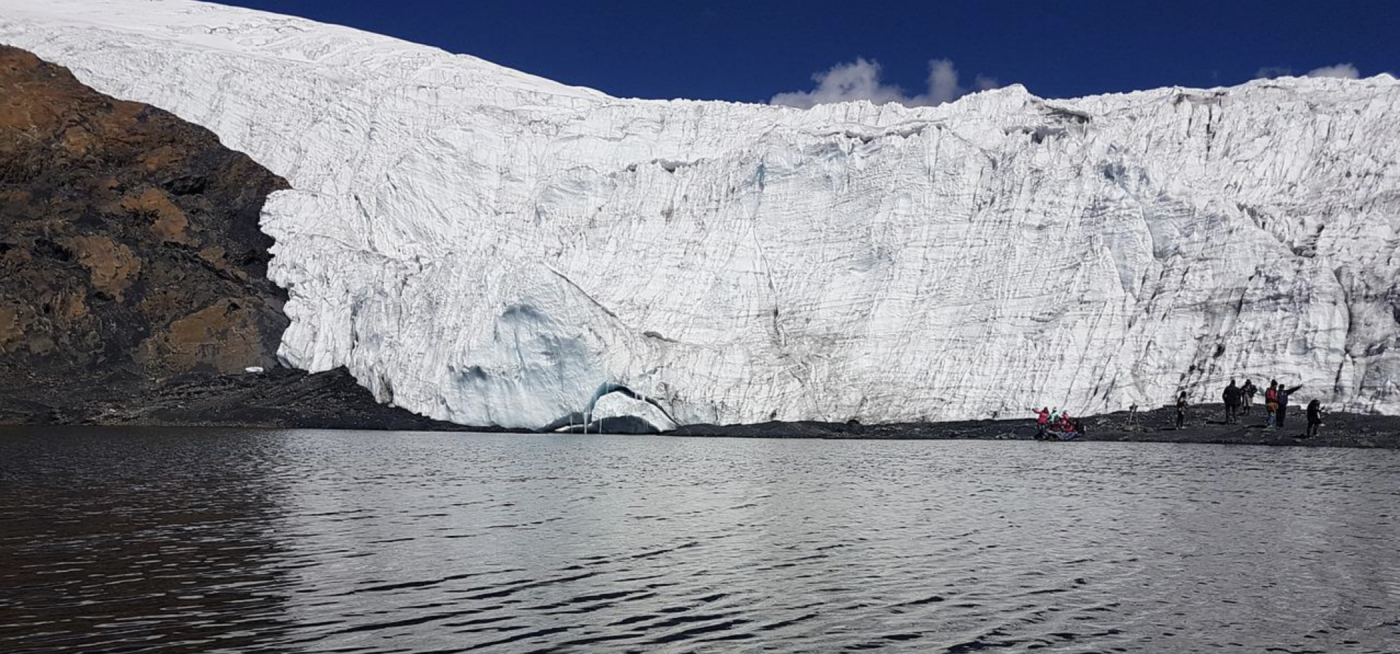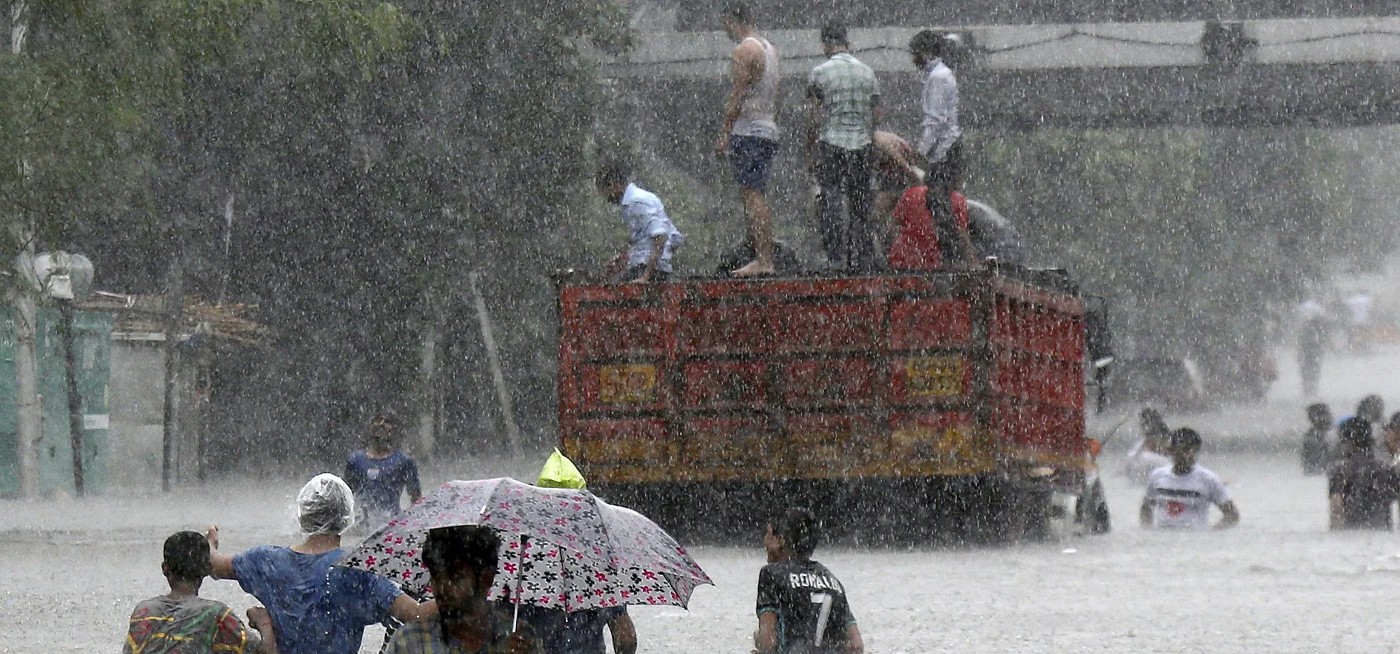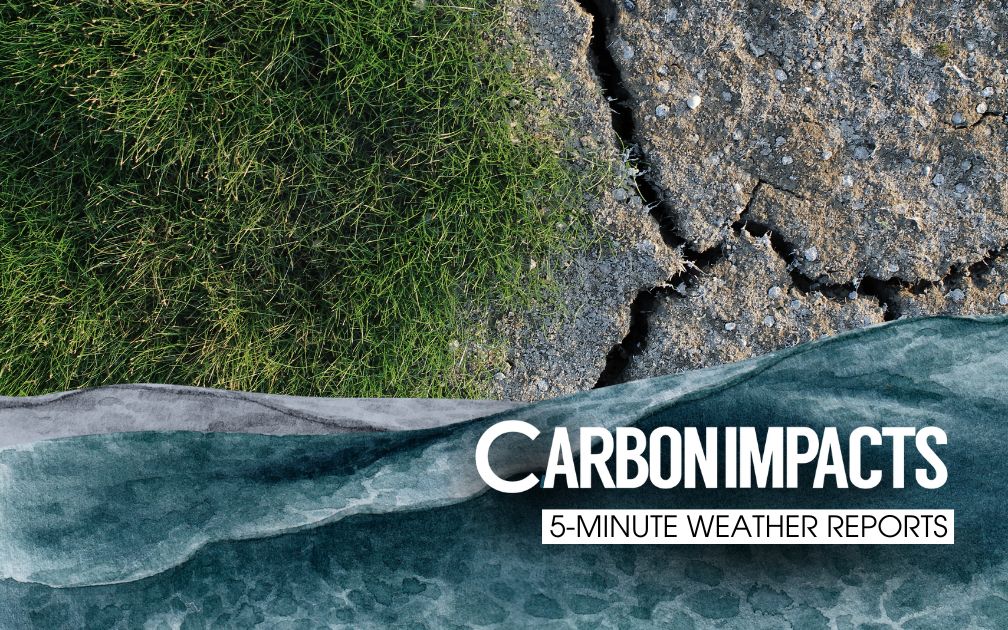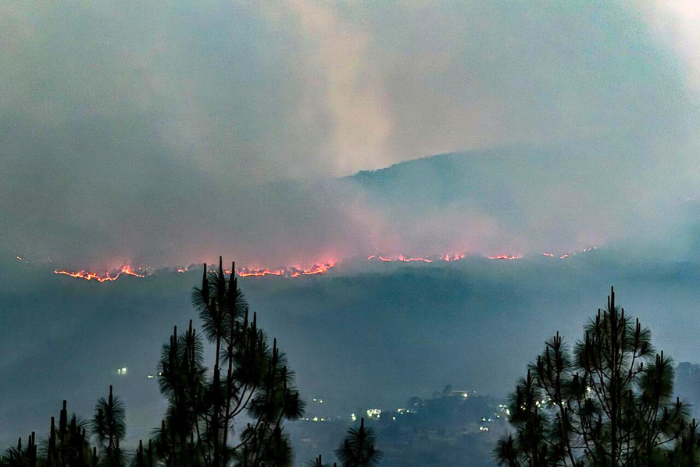As climate change escalates, compensation for its victims is unavoidable
The question in the lawsuit is simple: can RWE - a German energy company responsible for a measurable fraction of global warming to date - be held liable for the damages caused by its emissions?
By Leo Barasi, Author of The Climate Majority / Jun 16, 2022

The Peruvian glacier in question, destabilised by rising temperatures, threatens the town of Huaraz with an ever-growing risk of a sudden flood. Photo: Huaraz, Peru
A curious group of lawyers, scientists, translators and public officials recently made what might be one of the most important mountain climbs in legal history. The small crowd were in Peru, inspecting a glacier at the heart of a legal dispute that will have enormous implications for fossil fuel companies - and for the billions of people worldwide being hit by the consequences of climate change.
The question in the lawsuit is simple: can RWE - a German energy company responsible for a measurable fraction of global warming to date - be held liable for the damages caused by its emissions? It may seem an odd pairing: RWE spent most of its century-plus existence burning coal in Europe, far from Peru. But the carbon dioxide released as it generated electricity in Germany has heated all of the planet, warming Latin Americans as much as Europeans.
The Peruvian glacier in question, destabilised by rising temperatures, threatens the town of Huaraz with an ever-growing risk of a sudden flood. To protect the community from the flood risk, the litigant, Saúl Luciano Lliuya, a farmer and mountain guide, is asking RWE to pay an appropriate fraction of the cost.
The amounts at stake in the case are tiny - Lliuya is seeking just €17,000 from RWE - but the consequences could be huge. The trial is a test case, and if it succeeds it will open the way for many other victims of climate change to seek redress from the fossil fuel companies that caused the damage.
The case also reflects how the world has changed. After decades of scientific warnings that climate change ‘will’ one day harm people, societies, nature and economies, we are now in the age of ‘is’. Climate change is here and is causing harm that involves significant costs - and those harms can be linked with specific polluters.
Few places are experiencing the costs of climate change as widely as India. Increasingly extreme weather now seems to be everywhere in the country, from the recent long-running heatwave - at least 30x more likely because of human-caused warming - to cyclones like Amphan, whose rapid intensification was linked with climate change, and a threefold increase in heavy rain over central India.
This will have increasingly dangerous consequences in India. The latest IPCC report made clear that continued emissions will mean parts of India seeing heat and humidity exceeding limits of human survivability; sea-level rise threatening people, agriculture and infrastructure; and food production being hit.
Further warming will impose increasing economic costs on India. One study, cited by the IPCC, projects that agricultural labour capacity in India would fall 17% if warming continues to 3°C. Another cited study concludes that high emissions could reduce average global incomes 23% this century, with average incomes in India 92% lower in 2100 than they would have been without climate change.
These costs from climate impacts would be bad enough in normal times, but could be particularly challenging when India needs to invest in clean energy to eliminate its carbon emissions. Such action is essential for the world to stop temperature rise becoming even more dangerous: without faster policies to achieve net-zero emissions, India’s emissions would be consistent with warming of 4°C.
While the benefits of radically cutting fossil fuel use - for example from cleaner air - would outweigh the costs over time, the rapid transition will require some major up-front investments. For example the International Energy Agency estimates that India will need to invest $160 billion a year in energy systems up to 2030 - three times the current rate - to meet the target of net zero emissions by 2070 (although there would be enormous opportunities from this investment, meaning this is not only an economic cost). And this will be harder to do at a time when the economy is already being held back by the impacts of climate change - of which India was only a mid-ranking source.
If a Peruvian farmer can be compensated for the damages from climate change, could Indians? Quite possibly. If the case against RWE eventually succeeds it’s almost certain that others will follow, suing other fossil fuel companies for other climate change damages, wherever the emissions were released. But it will be a long and hard-fought process: the RWE case has been running since 2015 and may still be two years from an outcome - and that’s before any appeal. New cases might take just as long.
The international climate negotiations are another route for resources to deal with the impacts of climate change. The pledged $100 billion a year in climate finance from rich countries - of which half was supposed to be for adapting to climate change - hasn’t fully materialised, and even if it had, it would be insufficient to deal with escalating climate risks. As the planet warms, adaptation needs will grow. And proposals of direct compensation for climate impacts - loss and damage - aren’t even on the formal agenda for this year’s negotiations in Egypt.
To those who have been following climate negotiations for years, this is nothing new. But times are changing. With the impacts of climate change increasingly evident and painful, and the imperative for all countries to eliminate net emissions - even as they deal with the costs of warming - the question of how victims of climate change can be supported and protected is becoming inescapable. Whether the debate is settled in the courts or the negotiating halls, it will need to be settled.
Leo Barasi, Author of The Climate Majority
AgricultureNet Zero

